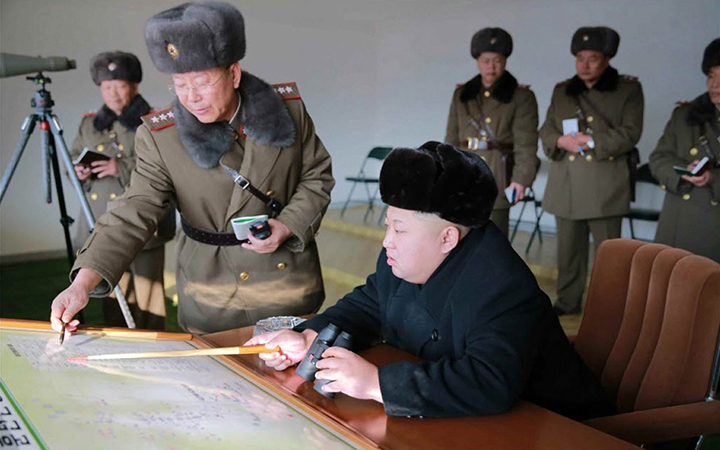SEOUL, Korea, Republic Of – North Korea said it could stop nuclear tests in exchange for the U.S. scrapping joint military drills with South Korea, while also calling for a peace treaty with the U.S. in an echo of demands that were rejected by Washington in the past.

The U.S. has previously called the North’s linking the military drills with its nuclear tests an “an implicit threat” and demanded that Pyongyang first demonstrate its sincerity to nuclear disarmament.
READ MORE: North Korea says nuclear test shows it could ‘wipe out’ US
An unnamed spokesman of the North’s Foreign Ministry called the purported hydrogen bomb test on Jan. 6 a justifiable move to ensure its survival against external threats.
“In response to the U.S. continuously invading our sovereignty and making threatening provocations, we will acquire ourselves with all possible nuclear attack and nuclear retaliation abilities, but will not thoughtlessly use our nuclear weapons ,” the official Korean Central News Agency quoted the spokesman as saying.
The spokesman also called the South’s decision to restart anti-Pyongyang propaganda broadcasts along their tense border an “odd” provocation.
The North is extremely sensitive to outside criticism of the authoritarian leadership of Kim Jong Un and has been retaliating to Seoul’s loudspeaker campaigns by flying thousands of propaganda leaflets across the border. Earlier in the week, South Korean troops fired 20 machine-gun warning shots after a North Korean drone briefly crossed the border.
READ MORE: Canadian pastor held in N. Korean labour camp says he digs holes 8 hours a day
The North’s H-bomb claims have been met with widespread condemnation and suspicion, but also questions on how to stop the country’s growing nuclear threat.
The Korean Peninsula remains technically at war because the 1950-53 conflict ended in an armistice, not a peace treaty.
Pyongyang has called the annual U.S.-South Korean military drills a rehearsal for an invasion, though the allies have repeatedly said that the war games are defensive in nature.



Comments